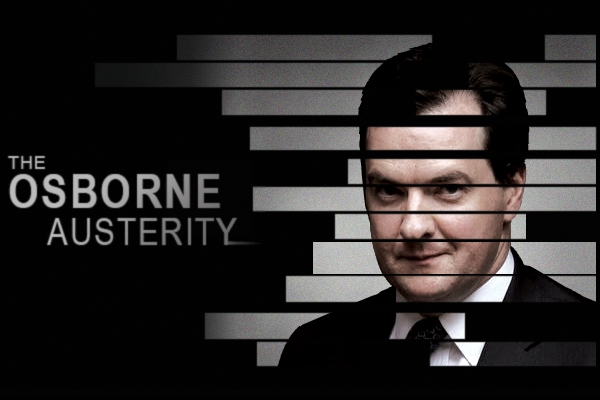The Labour party used to joke that the Tories would act as their cleaners: win, take the political pain, abolish the deficit by 2015 and then hand over a balanced budget when they lost the election. George Osborne has, at the very least, put paid to that. His Spending Review this week made it clear how painfully little progress is being made. Whoever wins the next election could close every school, open every prison, cede Northern Ireland, close every embassy and sack every soldier, sailor and airman — and it would still not be enough to put the government back in the black. Britain is a terrifyingly long way from fiscal sanity.
If the Chancellor had actually cut the government machine when voters expected him to, the pain would be almost over by now. Instead he has given himself eight years to cut total government spending by just 2.6 per cent. When the Labour government was forced to find savings by the IMF in 1976, it managed more than this in under a year. Like a child peeling a plaster away slowly in the hope of minimising the pain, the Chancellor has gone for slow-motion austerity. This has certainly kept the government machine fatter for longer. It may also have condemned Britain to a lost decade.
At first, Mr Osborne — ever the political strategist — had hoped to balance the books before the election and celebrate with a tax cut. This ambition now seems laughable, and it’s not entirely his fault. It took a bit longer to realise not just the extent of the damage inflicted by Labour but just how much of its ‘prosperity’ was a debt-fuelled illusion. After two years it became clear that the programme that Mr Osborne first outlined (shaving state spending by just under 1 per cent a year) was never going to be enough. He’d be left accumulating masses more debt, and then saddled with the interest payments. Yet he judged it politically impossible to move any faster on making savings. So he went with more debt.
The Chancellor’s guiding principle — politics first, economics second — has not served him (or us) well. Politically, he could get away with extra borrowing. No one would point it out: Labour was busy accusing him of ‘deep, harsh’ cuts even when spending was rising. The political debate has become detached from the economic reality. In a scripted political broadcast earlier this year, the Prime Minister claimed to be ‘paying down Britain’s debts’ when his government is, in fact, ramping up these debts by £3,000 every second. It’s strange he should seem unaware of the fact: servicing debt will soon cost more than education, policing or defence.
The biggest risk of Osborne’s high-debt strategy is that it bets the house on low interest rates lasting for ever. Even Sir Mervyn King, the outgoing Governor of the Bank of England, is starting to warn about the timebomb that low rates have planted under mortgages. When the rates go back from 0.5 per cent to the more normal 5 per cent, what will happen to mortgages? He did not spell it out, but a similar question faces Osborne. His plans are based on being able to borrow at rock bottom rates. But when they disappear, what then? Something which looked like a politically sound decision in 2010 — to delay the pain — may soon be politically toxic.
The Chancellor weighs all his decisions for political effect. The decision to hold a Spending Review was a political ruse intended to force Labour to show its hand on spending cuts. Pensioners have been offered an (unaffordable) ‘triple lock’ because they are the group most likely to vote. The Department of Health — force-fed cash under Labour — has not been asked to find savings because it is regarded as politically sensitive. Ditto schools.
This leads to some strange results. There is no money left, we are told, but the Chancellor was still boasting to the Commons about how he could afford to build High Speed 2, and to keep the science budget as fat as ever. The real pain is focused on defence, police, students and councils.
The slow cut in corporation tax, perhaps Osborne’s most impressive policy, is slowly delivering results. There are increasing grounds for optimism. But while Britain looks around for green shoots — real or imagined — the United States, Canada, Japan and Germany have all seen their economic output return to pre-crash levels. Britain remains several years away from this goal. It will now take ten years for per-capita GDP to recover. Ten years for the average wage to recover. At least ten years (not five, as Osborne initially told us) to balance the books. And ten years to get wash our hands of the zombie banks. This is not an impressive record now, nor will it be in 2015. And this is the great irony: in spite of all Osborne’s political calculations, he has produced pitifully little to impress voters on the doorstep.
There will be much to commend David Cameron’s government when the time comes. Michael Gove’s reforms will have extended choice in education to tens of thousands of families who would never have been able to afford it. Iain Duncan Smith’s welfare reform is bold and ambitious. The Prime Minister cuts an impressive figure on the world stage and discharges his duties with dignity and panache. But there has been no real economic progress. A shame, because that’s what is needed most.






Comments